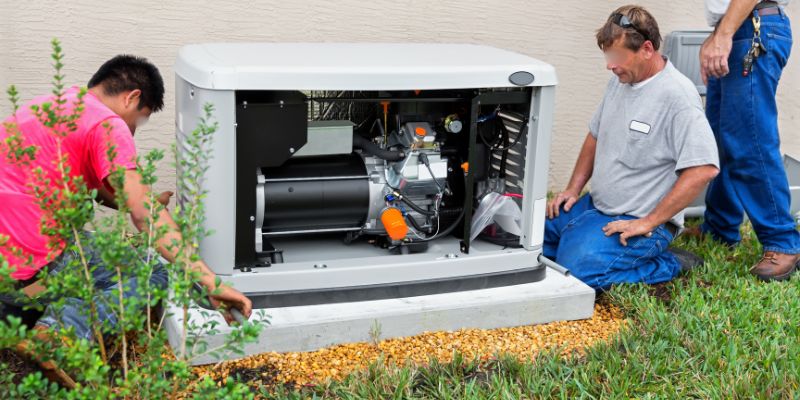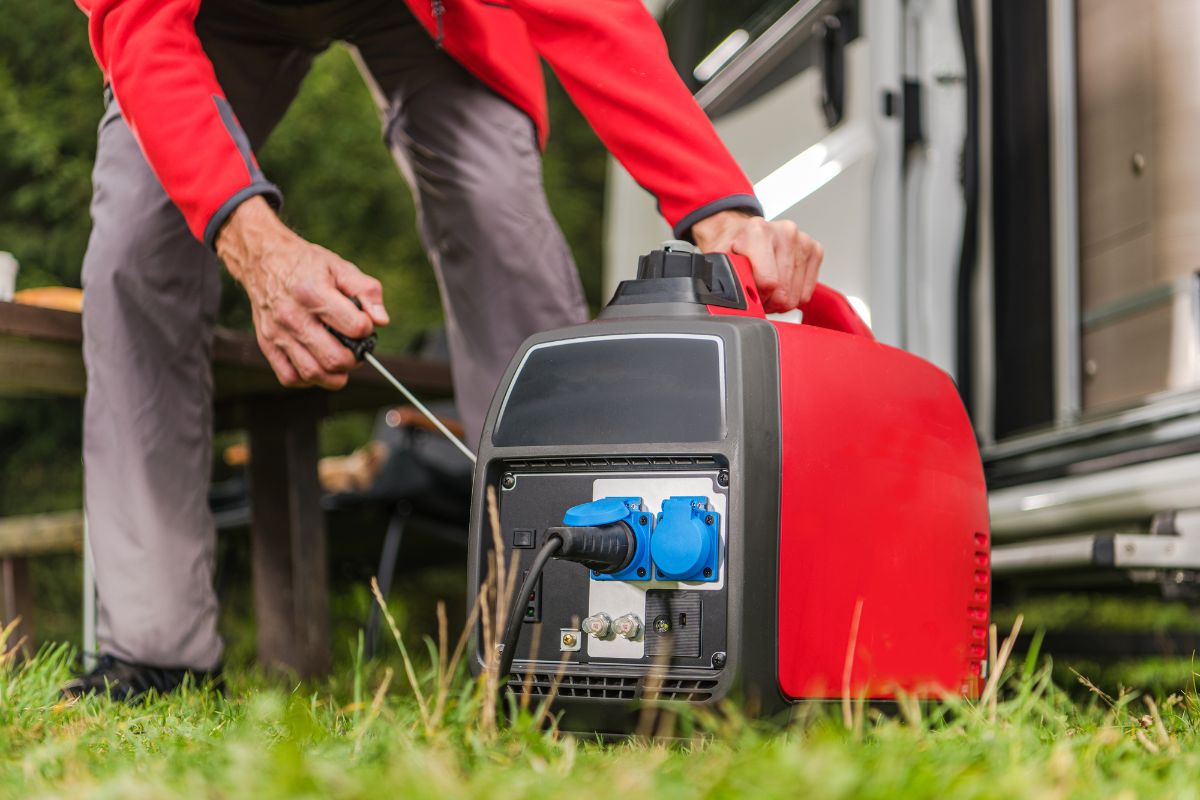If you’ve ever experienced a power outage in the heat of summer, you know how vital a functional air conditioner is for comfort. But running an air conditioner during an outage requires a generator up to the task. Choosing the right size generator is not just about convenience—it’s essential for both the safety of your unit and efficient energy usage.
Below, we’ll guide you through everything you need to know so you can pick the ideal generator for your air conditioning needs.
Understanding Air Conditioner Types and Their Power Requirements
Air conditioners come in various shapes and sizes, and each type has distinct power demands. Here’s a breakdown:
Central Air Conditioners
These systems cool the entire home and have the highest power requirements. They are sized by tonnage, with one ton equal to 12,000 BTUs. A central AC needs substantial running wattage and a surge of power to start the compressor.
- Typical power needs:
- 2-ton unit (24,000 BTUs): 3,500–4,000 starting watts, 2,000–2,500 running watts.
- 4-ton unit (48,000 BTUs): 5,500–6,500 starting watts, 3,500–4,500 running watts.
A large standby generator is often required for these systems.
Window Air Conditioners
Window ACs are popular for cooling single rooms and are generally more power-efficient.
- Typical power needs:
- 5,000 BTU unit: 1,200–1,500 starting watts, 500–700 running watts.
- 15,000 BTU unit: 2,200–3,000 starting watts, 1,500–2,000 running watts.
Most window ACs can run on portable generators rated 2,000 to 4,000 watts.
Portable Air Conditioners
These can be moved from room to room, making them versatile during outages. Their power needs are comparable to window ACs.
- Typical power needs:
- 8,000 BTU unit: 1,500 starting watts, 1,000 running watts.
- 14,000 BTU unit: 2,500 starting watts, 1,800 running watts.
Portable ACs can typically run on smaller portable generators between 2,000 to 3,000 watts.
How to Calculate the Right Generator Size
Choosing the right generator starts with understanding two things about your air conditioner:
Starting (Surge) Wattage
This is the wattage needed to start the AC compressor. It’s typically 2–3 times higher than its running wattage.
Running Wattage
Once up and running, this is the consistent wattage your air conditioner uses.
For example, if your AC has a starting wattage of 3,500 watts, and running wattage of 2,000 watts, you’ll need a generator rated at least 3,500 watts to avoid overloading it.
To calculate for multiple appliances, you’ll need to sum up the starting wattage for the AC and any other devices you’d like to power simultaneously. Always aim for 20% more wattage than your estimated total for added safety and to accommodate fluctuations.
Tips for Selecting the Right Generator
Tip #1: Consider Surge Capacity
Your generator must handle the initial surge wattage. Opt for one that exceeds this by at least 20-30% to prevent overload.
Tip #2: Explore Standby vs. Portable Generators
Standby generators are more reliable for high-power demands like central AC units. Portable generators are affordable and better suited for smaller ACs or limited appliance use.
Tip #3: Choose Efficiency
Look for generators with inverter technology for smoother electricity, especially if you’re using it to run sensitive electronics in addition to your AC.
Tip #4: Invest in Accessories
Add a soft start capacitor to help reduce the surge load of your AC. This device gradually increases power rather than demanding it all at once, making the generator’s job easier.

Stay Cool with Fahrenheit AC’s Expertise
Choosing the correct-sized generator for your air conditioner can be intimidating, especially if you’re unsure about your unit’s power needs. That’s where the experts at Fahrenheit AC come in. With years of experience in air conditioning solutions, they can help you select energy-efficient systems, provide maintenance advice, and recommend upgrades for your cooling needs.
Whether you’re dealing with central or portable AC units, Fahrenheit AC ensures you stay cool—no matter the season. Visit their website today for professional insights and tailored solutions!
Frequently Asked Questions (FAQs)
How big a generator do I need to run my AC?
The generator size depends on your AC’s wattage. For a central AC, you’ll need 5,000–12,000 watts. Window or portable ACs may only need 2,000–3,000 watts. Always check the starting and running wattage to pick the right generator, and add about 20% for safety.
Will a 2000W generator run an air conditioner?
A 2000W generator can run small portable or window AC units, typically up to 8,000 BTU. However, larger units or central ACs require significantly more power. Check your AC’s wattage needs, including the surge wattage, to confirm compatibility with a 2000W generator.
Will a 7500 watt generator run my AC?
A 7500W generator can easily power many central AC units, up to 3 tons (36,000 BTUs), plus smaller appliances. You may need a higher-capacity generator for larger ACs or multiple high-demand devices. Always account for the starting wattage when assessing compatibility.
Can a 5000 watt generator run an air conditioner?
A 5000W generator can run smaller central AC units (around 2 tons) or large window units up to 15,000 BTU. For larger systems, it may struggle with high starting wattage. It’s vital to check the specific power needs of your AC to ensure safe and efficient operation.
Final Thoughts
Picking the right-sized generator for your air conditioner is about knowing your unit’s power requirements and planning for contingencies. Whether you’re powering a whole-home system or a single portable AC, choosing a generator with sufficient wattage can save you from frustration (and potential damage). Understand your AC’s starting and running watts, add a safety margin, and ensure you get a reliable generator.
With the appropriate setup, you’ll be ready for whatever comes your way—keeping cool and comfortable, even when the power’s out!es the air, significantly improving comfort in hot weather by reducing indoor humidity levels.
